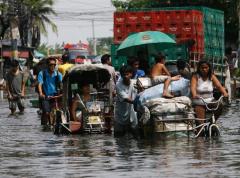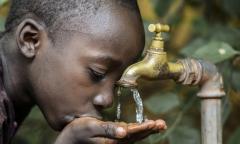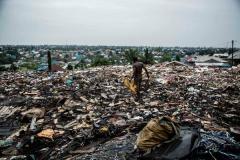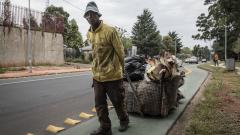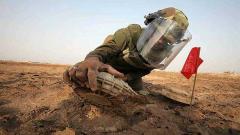Basically, although the universities engagement in local and regional community in theory dates back at least two decades and SUEUAA project was not the first attempt of this kind, the project created bases for close critical discourse among the city and universities representatives to discuss the city’s challenges, their causes and consequences. The project opened up a debate about the responsibility of both parties and how each of them may play an effective role to overcome challenges.
By opening the discussions, it was realised that the city’s overall environment is a multifaceted, complicated and dynamic phenomenon affected by so many different players. As a result, it’s effective management needs integrated, harmonised and mutually respected policies, which must be taken collectively via citywide engagement of all major, and also many minor players.
In this regard, the universities have a distinct responsibly through which they not only prepare active, democratic and responsible citizens to participate in the community’s development, but they have to provide the city’s senior officials timely, valid and reliable data and information for making necessary decisions when it is required.
The community engagement programs of universities have generated interest among universities and some local government officials to work for collaboration to develop the communities in Manila. The items in the research instrument has raised awareness among extension coordinators to explore and develop relevant programs for Manila communities. Likewise, local government officials have seen the potentials of collaborative efforts to solve the problems of Manila. There was a realization that through partnership between and among stakeholders in the communities will lead to community development.
After the focus group discussion with the extension coordinators of PNU, they became active in the communities and now they feel confident that they were able to implement the programs well with our partner communities.
In the messenger group; one university extension coordinator gave a message saying that: "our extension work is for PNU and the country”.
Thus, dialogue is important in doing collaborative programs. And the focused group discussion was an instrument for dialogue.
The SUEUAA project had a number of positive outcomes at both personal and institutional levels. The project enabled us to look more closely into the role of higher education in community and national development. It also provided an opportunity to learn in more detail, the challenges that the City of Harare grapples with to meet the expectations of residents and other stakeholders and how universities such as UZ could be more actively involved in addressing them.
The nine in-depth interviews and numerous other informal discussions we conducted with different stakeholders provided us with a rich understanding of the operations of the two institutions. It also opened up new sources of information for both staff and students whose research problems should emerge from day-to-day needs rather than just hypothetical constructs.
The various visits that we undertook through SUEUAA to other countries and participation in meetings, workshops, symposia, and conferences were all enriching academically, professionally and personally as they broadened our experiences and perspectives. The Principal Investigator, Professor Michael Osborne and the whole team of SUEUAA researchers from six countries were a real source of inspiration as they freely shared their rich knowledge and experiences.
As highlighted in this report, the city of Dar-es-Salaam and other cities in the country are vulnerable to many challenges that call for smart solutions, and immediate responses from the university’s counterparts. The SUEUAA project and its success in using the university engagement benchmarking tool at the University of Dar-es-Salaam and other partner universities could serve as a viable model for adoption or adaptation by other universities in Tanzania and in other African countries.
As far as the city of Dar-es-Salaam is concerned, future plans involve recommending to the UDSM Quality Assurance Bureau that the benchmarking tool used in SUEUAA project should be adopted University-wide and later on be recommended to the Tanzanian University Commission (TCU, http://www.tcu.go.tz/) for possible country-wide adoption.
The CoJ is keen to engage with the universities, while universities are keen to engagement with the CoJ. However, they perceive each other to have different goals, which are not necessarily compatible. Whereas the CoJ representatives perceive the universities to focus more on research benefits, university academics blame the CoJ for implementing projects without obtaining sound research advice from academics. For example, the bicycle-lane project in CoJ: millions were spent on building bicycle-lanes in the CoJ, in particular between the city centre and the campuses of Wits and UJ, and these lanes are not used at all. Neither the students nor the commuters cycle.
It seems that the level of CoJ engagement at Wits has been well established over many years, also owing to Wits’ close proximity to the city centre. Even though UJ has a Community Engagement Manager, and a Strategic Relations Manager who liaises with the CoJ, engagement with the CoJ do seem to occur on an ad hoc basis.
Future steps should focus on determining the research and support needs of the CoJ, and align these with the skills at the universities to ensure a longer term relationship.
The work of the SUEUAA project has had six principal outcomes:
- Highlighting the important and challenging active role University of Duhok has taken and achieved in the fields of environment, agriculture, health, city infrastructure development, gender, refugees and migration;
- The establishment of research collaboration on the environmental impact of conflict and landmine clearance with Duhok City Landmine department authorities. University of Duhok to plan for the establishment of Landmine Department within College of Education;
- Opened up of wider collaboration and awareness of the city authorities and NGOs projects with University of Duhok;
- Strengthened academic links with University of Glasgow and established more collaborations for staff and research student mobility exchange programs in the fields of Education, Science, engineering, medicine and life sciences. This has in particular occurred through the Erasmus+ International Credit Mobility grant won by the University of Glasgow which has allowed 8 staff to visit Glasgow. These staff specialise in the field of Medicine, Chemistry, Structural Engineering, Mathematics and Statistics, Urban Geography and Finance. As a result of this, research collaborations have been established, in the fields of Infectious Diseases, Statistical studies of the effect of landmines on health, agriculture and economy, harvesting energy in the form of modern super capacitors in Chemistry and the development of batteries and membranes. Also, the treatment and recycling of waste material from building construction sites and reducing environmental pollution, and the study of the movement of the rural areas and communities to urban cities and its effect on the economy and social structure of the societies in the Kurdistan region are being covered in the exchanges, which started in July 2019;
- Established academic links and learned from the projects of the other universities in Asia and Africa taking part in our SUEUAA program;
- University of Duhok has obtained higher accreditation from Ministry of Higher Education in Kurdistan Region of Iraq in the field of collaboration with other international universities, such as Dortmund University in Germany, University of Malaya, University of Tehran, University of Sanandaj, Leicester University and University of Glasgow, and obtained international grants (for example, ERASMUS Mundus grants, DAAD (German) grants, a Fullbright scholarship in USA, and ERASMUS+ mobility grants) to support collaboration projects for cities and infrastructure programmes.

